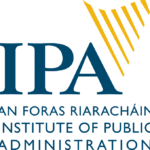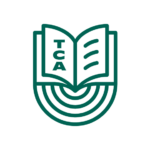Human resource management is a multifaceted function that requires a varied skill set and a high degree of training. This is because an organisation’s HR department is responsible for the management, recruitment, organisation and professional growth of the organisation s employees.
A HR manager acts as something of an intermediary between employers and employees he or she must manage and reconcile staff expectations with those of the organisation. If an organisation is to have well-trained, motivated and committed labour force at its disposal, then it must ensure that the personal and professional needs of its employees are addressed. A HR manager must therefore be mindful of the fact that an organisation s most important resource is its workforce. To make the most of that resource, the HR department must be capable of creating a conscientious and supportive work environment.
What does HR involve
Human resource management requires an understanding of the recruitment process, employment law and performance management. For those hoping to find work within a HR department, a part-time CIPD (Chartered Institute of Personnel and Development) Certificate in Human Resource Management is the ideal place to begin as it is aimed at those with no previous experience. In order to obtain a CIPD qualification, students may be required to complete a work-based assessment.
To complement their training, students may also consider doing a part-time Diploma in Human Resources Management, which will educate them in the strategic, theoretical and practical elements of HR. Classes tend to be highly participative, with presentations, class discussions and group projects all designed to prepare students for the highly interactive nature of typical HR positions. Course modules include: Introduction to Management Theory and Practice, Promoting Employee Engagement and Emerging Trends and Issues in HRM.
An Advanced Diploma in HR Management (Level 7) will further prepare learners for the rigours of the real-world HR environment. While those who are new to the area of HR can take the course, it will also benefit more experienced participants by augmenting their understanding of modern HR practices. During the course, students will learn how to manage performance, deal with discipline and dismissal issues, develop competencies that enhance individual and organisational performance, understand contract and business law, learn the tools of recruitment and selection, and write staff training plans. They will also avail of a series of practical workshops designed to help develop their interviewing skills.
At the top end of the scale are part-time MA programmes. An MA will provide students with the most in-depth training on the key issues of effective people management and generally runs for two years. It will cover a variety of important concerns for instance, how to retain and manage staff during such an economically turbulent period; how to continuously optimise employees skill sets; and how to increase and sustain performance. While experience is not normally required for course entry, applicants must hold at least a primary degree, though this does not need to be in a related field.
It is also possible for students to study for an MA in HR Management by enrolling on a two-year distance-learning programme. Students will be awarded a Postgraduate Diploma in Public Management after their first year of study. During the second year they will be required to write a dissertation, and will be asked to attend some weekend seminars.
Why do it
Doing a Human Resource Management course will allow learners to develop their understanding of the importance of effective relationships within a multi-disciplinary team. Participants will learn the people management, conflict resolution and mediation skills necessary for employee satisfaction and retention and the delivery of a quality service.
What comes next
Many graduates of HR Management courses go on to work as HR managers, business partners and consultants for some of the leading national and international organisations in Ireland and abroad. Others go on to find work as training specialists, line managers, supervisors or team leaders.
At a glance
A CIPD Certificate in HR Management will generally run for 5 to 6 months. A part-time Diploma in HR Management will last for 1 year while an advanced diploma will take 7 to 8 months. Part-time MA programmes in Human Resource Management last for 2 years.















